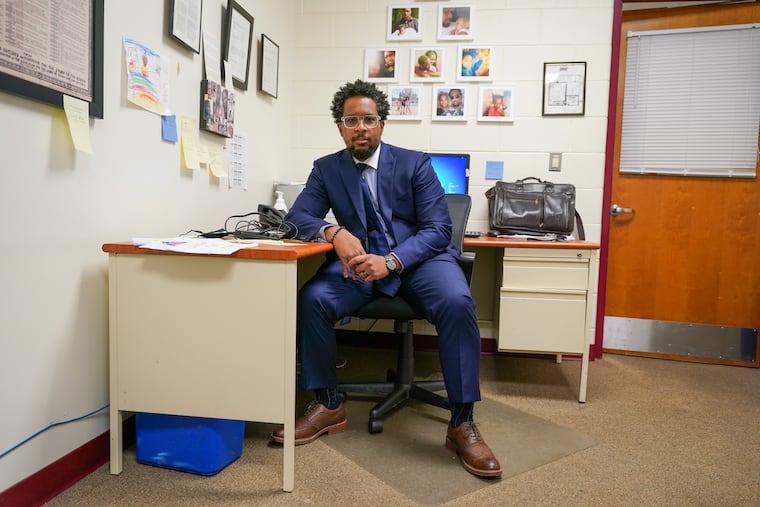Black history includes some ‘hard but necessary truths.’ Teaching them is an act of resistance.
As Black History Month is upon us, it is a good time to be reminded that teaching Black history in earnest, and without fear or favor, is an act of bravery.

Tyre Nichols is another Black man murdered at the hands of law enforcement. Sadly, I suspect he won’t be the last. But what makes this case notably different from the murders of George Floyd, Philando Castile, or Walter Wallace Jr., for example, is that the police officers who killed Nichols were all Black.
As a result, Memphis, Tenn., police chief Cerelyn Davis, a Black woman, said that the fact the officers are Black “takes off the table that issues and problems in law enforcement [are] about race.”
She couldn’t be more wrong.
» READ MORE: The Tyre Nichols video and the overdue promise of police reform
Law enforcement is rooted in systemic racism and white supremacy, dating back to when American police helped patrol slaves.
These are hard but necessary truths that all students must learn in their history classes, to understand why Black police officers alone cannot stop police brutality. (Some adults need to learn that lesson, too, but I digress.) However, numerous policymakers around the country have prevented such truths from being taught in the name of stopping critical race theory and “wokeness.” Florida Gov. Ron DeSantis has launched a crusade against an AP African American studies course, and the College Board changed its official Advanced Placement curriculum to remove writers and scholars linked to critical race theory, Black Lives Matter, and the queer experience, among other politically sensitive topics.
As Black History Month is upon us, it is a good time to be reminded that teaching Black history in earnest, and without fear or favor, is an act of bravery. Even in the face of threats to one’s livelihood. For Black teachers, doing so is part of a long tradition of resistance.
The tradition of resistance is responsible for why we have Black History Month, originating as Negro History Week in 1926.
It’s an act of resistance to teach students about the roots of policing. It’s resistance to teach the racist origins of the religious right movement, which sprung from the fight over segregation. It’s certainly resistance to teach about the theory of racial capitalism and the impact of extracting economic and social value from Black people.
Consider, for instance, the work of Carter G. Woodson. After obtaining his doctorate in history from Harvard, Woodson began working as a teacher and historian. Woodson dedicated his life to legitimatizing the historical traditions of people of African descent, to make up for the limited history curriculum that disregarded Black people.
To complete that work, he created the Association for the Study of Negro Life and History in 1915. Sustaining such an institution costs money, and white philanthropists had it. Yet the strings attached were often dictating to Woodson what he could research and retell for Black teachers to teach Black children. An example is Thomas Jesse Jones, the education director of the Phelps-Stokes Fund. Jones was responsible for early funding of the association but later withdrew support due to a philosophical conflict over, in part, how Black people ought to be educated.
Undaunted, Woodson continued to write textbooks, maintain the Journal of Negro History, the Negro History Bulletin, and promote Negro History Week. These materials entered Black schools, countering racist narratives about Black people found in textbooks and curricula, fueling future leaders amongst Black children. Children like Angela Davis, the Rev. Jesse Jackson, Ella Baker, James Farmer, and John Lewis.
Had Woodson not resisted, where would America be today?
“Had Woodson not resisted, where would America be today?”
Where will America be 100 years from now if today’s educators fail to resist against the onslaught of violence against Black history?
Congress may fail to pass legislation to prevent police brutality, but educators can empower young people with the information they need to make our future better, and more just. But in order to do so, educators must resist.
Black History Month and the murder of Tyre Nichols remind us why.
Rann Miller is an educator and freelance writer based in southern New Jersey. His Urban Education Mixtape blog supports urban educators and parents of children attending urban schools. Rann is also the author of the forthcoming book, “Resistance Stories from Black History for Kids.” @RealRannMiller